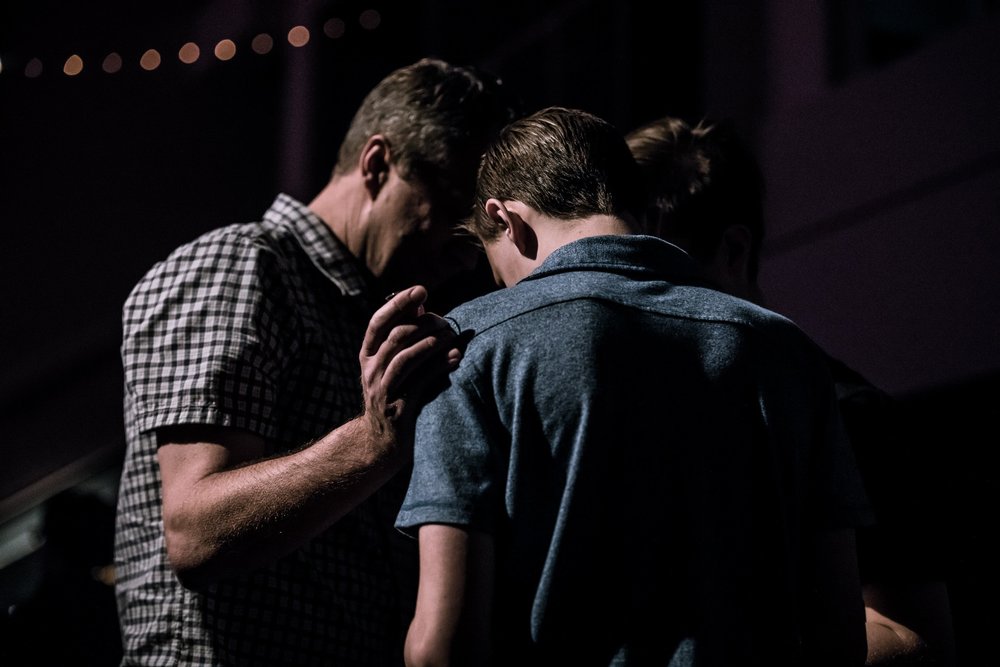When Death Occurs
Whether a death is sudden or a long, drawn-out affair, any passing can leave us emotional and overwhelmed, and no amount of preparation can fully prepare you for the event. When you are in a heightened emotional state, even the most basic decisions can seem staggering. The following is a rough guideline of what should be done within the first 24 hours after death:
STEP ONE:
WHEN A DEATH OCCURS AT HOME UNEXPECTEDLY:
If the person was not under hospice care, the police will have to be notified immediately. The police will be dispatched to the home and place the call to the coroner/medical examiner. From there the coroner will examine your loved one and determine whether further action is necessary. The coroner must release the body before a funeral home can take them into their care.
WHEN A DEATH OCCURS AT HOME WHILE ON HOSPICE:
If the person was on hospice care, the first call should be the hospice nurse if they are not already present. They will complete any procedures that they need to, before they contact the funeral home to retrieve your loved one. The funeral home cannot take a loved one from their place of death until the hospice has been notified.
WHEN A DEATH OCCURS AT A HOSPITAL, NURSING HOME OR IN A HOSPICE:
The staff of a care facility such as a hospital or a nursing home will notify you and the necessary authorities immediately after a death has occurred. If a funeral home has been provided to the hospital or nursing home, they will be notified at the time of death. After your loved one has come into our care, a funeral director will contact you by telephone to discuss final arrangements.
STEP TWO:
INFORMING A FUNERAL DIRECTOR:
Once everything has been cleared with the proper authorities, the next call you place should be to a licensed funeral director (unless the hospice, hospital, or nursing home has done this for you). Funeral Directors are here to help you obtain a death certificate, transport the body, select a casket or urn, and arrange the funeral/memorial service. The Funeral Director will also help you notify the employers and insurance company of the deceased to assist with those arrangements. Funeral Directors help and advise you, and will work very hard to relieve the stress and logistics involved in funeral planning.
You should speak with a funeral director within 24 hours of a death to begin to make final arrangements for your loved one. Making decisions such as these may seem a daunting task, especially when you are in heightened emotional state, but funeral home staff have years of experience dealing with these issues. They will help keep plans simple and straightforward, and will encourage you to consider options you might not have even been considering.
STEP THREE:
MAKING ARRANGEMENTS:
The Funeral Director will gather information required for the death certificate. This includes:
- Full Name and Address
- Social Security #
- Marital Status
- Race/Ethnicity
- Date and State of Birth
- Highest Level of Education
- Father’s Name, Mother’s Name (including Maiden name)
- Name of Spouse (if married)
- Occupation
The Funeral Director will also need pertinent documents to do all the legal paperwork. Some of the documents include:
- Life Insurance Policies
- Last Will
- Healthcare Directives
If no pre-planning has been done, necessary arrangements need to be made for the funeral service. These may include:
- Selecting Burial or Cremation
- Scheduling the location, date and time of the visitation and/or funeral service
- Choosing a casket or urn
- Arranging a cemetery plot
- Preparing an obituary notice
- Preparing prayer cards or memorial folders for the service
- Scheduling transportation arrangements
- Ordering flowers
- Liaising with cemetery and church staff on your behalf
A Funeral Director will guide you through all necessary steps, using your wants, needs, and desires as a foundation to create a memorable service for your loved one. Each service is personalized and made to be memorable to the family and their loved ones.

